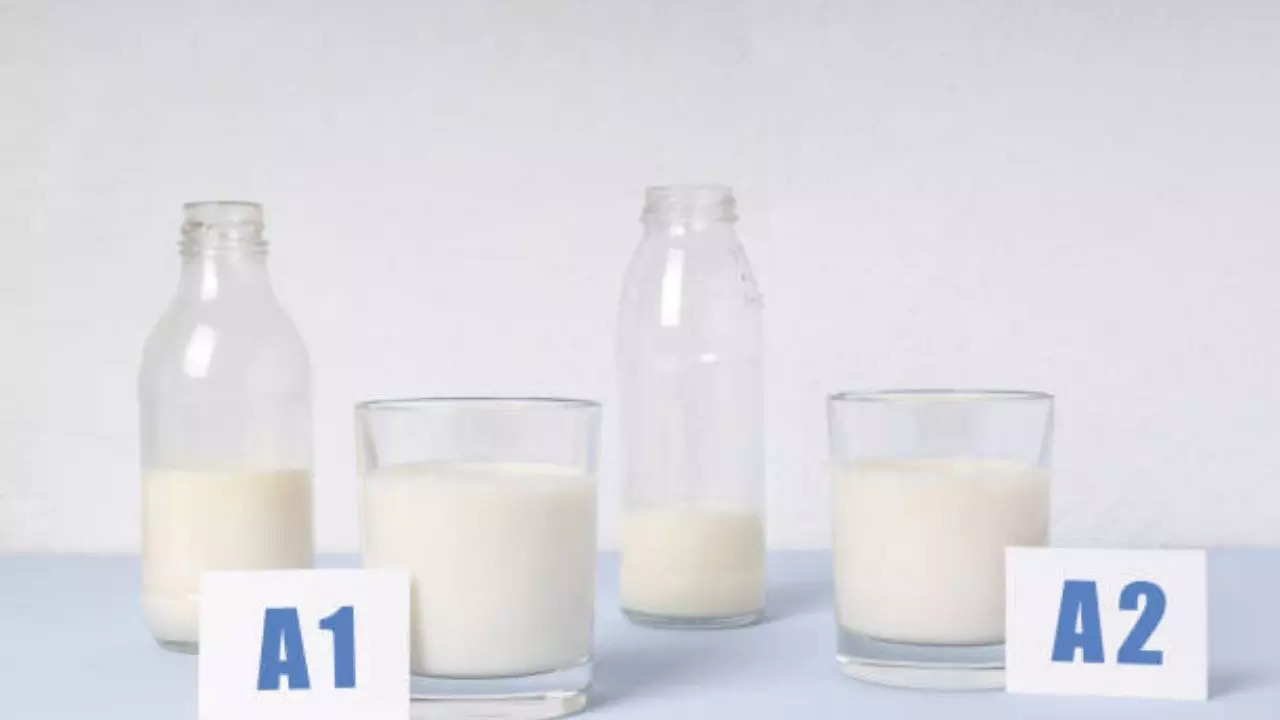The largest group of proteins in milk is casein, with 80 percent of the nutrient
The Food Safety and Standards Authority of India has withdrawn its recent notice directing food companies to remove claims about A1 and A2 types of milk and milk products from packaging. The regulatory body said the notice was withdrawn to allow for further discussions with stakeholders.
This therefore means that food business operators can continue to market and sell products with A1 and A2 labels for now. Last week, the FSSAI ordered the removal of A1 and A2 labels after stating that these labels were misleading as they could confuse consumers.
The regulator also argued that these claims did not comply with the Food Safety and Standards Act 2006.
What did FSSAI find in the investigation?
According to FSSAI, research has shown that the differentiation of A1 and A2 in milk and dairy products is related to the structure of the beta-casein protein present in milk. However, current regulations do not officially recognise this distinction.
What do the terms A1 and A2 mean?
The largest group of proteins in milk is casein, which experts say accounts for 80 percent of the nutrient. There are several types of casein in milk, including beta-casein and casein. Beta-casein A1 and beta-casein A2.
While A1 mThe Ilk breed comes from cow breeds that originated in Northern Europe, such as Holstein, Friesian, Ayrshire and British Shorthorn, while A2 is found mainly in breeds that originated in the Channel Islands and Southern France.
While regular milk contains both A1 and A2 beta-casein, A2 milk contains only A2 beta-casein. According to studies, A1 beta-casein can be harmful and A2 beta-casein is a safer option. Therefore, there has always been a public and scientific debate about these two types of milk.
Adverse health claims on A1 milk
According to studies, beta-casein A1 releases beta-casomorphin-7, an opioid peptide during digestion, which experts believe causes type 1 diabetes, heart disease, infant death, autism, and severe digestive problems. While BCM-7 does affect the digestive system, it is still unclear to what extent it is absorbed intact into the blood.
Type 1 Diabetes
According to studies, drinking A1 milk during childhood increases the risk of developing type 1 diabetes. However, Healthline states that these studies are observational and cannot prove this. So far, no human clinical trials have investigated the effects.
Heart problems
According to animal studies, consumption of A1 milk increases the risk of heart disease. In a test on rabbits, it was shown that A1 beta-casein promoted the accumulation of fat in damaged blood vessels. The accumulation of fat blocks blood vessels and causes heart problems such as strokes and heart attacks.
Autism
Research says that BCM-7 levels were higher in babies who were fed cow’s milk compared to those who were breastfed.
Digestive problems
Babies who cannot fully digest lactose suffer from bloating, gas, and recurrent diarrhea. Many animal and human studies also suggest that beta-casein A1 increases inflammation in the digestive system.
Disclaimer:
The information contained in this post is for general information purposes only. We make no representations or warranties of any kind, express or implied, about the completeness, accuracy, reliability, suitability or availability with respect to the website or the information, products, services, or related graphics contained on the post for any purpose.
We respect the intellectual property rights of content creators. If you are the owner of any material featured on our website and have concerns about its use, please contact us. We are committed to addressing any copyright issues promptly and will remove any material within 2 days of receiving a request from the rightful owner.

